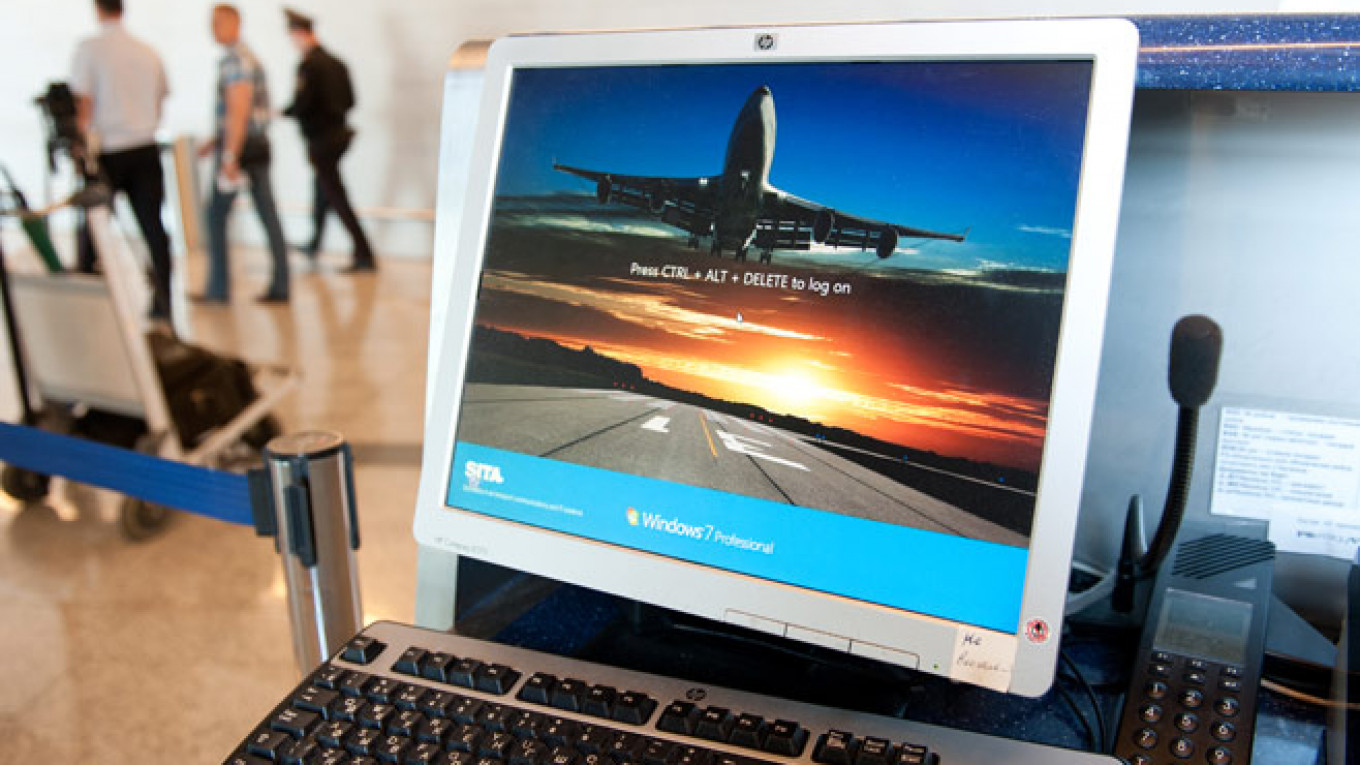Russia is developing its own booking system for airline tickets, as foreign online booking companies could leave the Russian market due to a new personal data law, Russian government daily Rossiiskaya Gazeta reported Friday.
Russia's personal data protection law comes into force on Sept. 1, and requires that all personal data collected on Russian citizens be stored on servers located on Russian territory.
Currently, airline tickets are predominantly booked through foreign companies whose servers — containing data collected on Russian citizens — are located overseas.
Because the foreign companies' servers do not comply with the new Russian legislation, Russia must develop its own booking system, the head of Russia's Federal Tourism Agency Oleg Safonov said in an interview with Rossiiskaya Gazeta.
A national online booking system is being developed by state-owned technologies corporation Rostec, according to Vedomosti business daily.
Travelers using Russia's airline booking system will also benefit from an online information portal — Russia.travel — that is currently being developed by the Federal Tourism Agency, Safonov said, according to Rossiyskaya Gazeta.
The online booking system will be expanded in the future to allow Russian customers to purchase train tickets, hotels and excursion packages.
Safonov believes that the establishment of a national online booking system will have a positive impact on Russian holiday resorts and will increase their occupancy.
Kommersant newspaper reported Wednesday, citing Russia's Transportation Ministry, that the personal data protection law does not apply to foreign ticket reservation companies, as the online ticket booking services act as agents of airline companies. The airlines are not effected by the new legislation and neither are the booking services, the newspaper said.
However, the Federal Security Service (FSB) opposes this exemption and insists that all foreign companies store personal data of Russian citizens within the country's borders, an unidentified federal official told Kommersant.
A Message from The Moscow Times:
Dear readers,
We are facing unprecedented challenges. Russia's Prosecutor General's Office has designated The Moscow Times as an "undesirable" organization, criminalizing our work and putting our staff at risk of prosecution. This follows our earlier unjust labeling as a "foreign agent."
These actions are direct attempts to silence independent journalism in Russia. The authorities claim our work "discredits the decisions of the Russian leadership." We see things differently: we strive to provide accurate, unbiased reporting on Russia.
We, the journalists of The Moscow Times, refuse to be silenced. But to continue our work, we need your help.
Your support, no matter how small, makes a world of difference. If you can, please support us monthly starting from just $2. It's quick to set up, and every contribution makes a significant impact.
By supporting The Moscow Times, you're defending open, independent journalism in the face of repression. Thank you for standing with us.
Remind me later.






